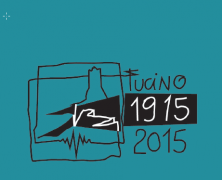PRESS RELEASE In 2013, the International Union of Geological Sciences (IUGS) launched the Resourcing Future Generations (RFG; https://www.geolsoc.org.uk/~/media/shared/documents/RFG/White%20Paper%20pdf.pdf?la=en) initiative to bring world attention to the challenges of sustaining resource supplies. The RFG initiative includes a diverse group of geoscientists, environmental and social scientists, including economists, drawn from a range of institutions and EuroGeoSurveys with diverse private and public experience in exploration, mining, processing, environmental protection, and sustainable development. During its most recent workshop held in Namibia from the 25th to 30th of July, 2015, the group began by recognising that there are several global-scale challenges facing humanity that are interrelated: (i) climate change; (ii) sustainable development, and (iii) resource adequacy and diversity of supply. Attempts to address climate change and sustainable development necessarily involve resource adequacy, and yet has received minimal global policy consensus. The workshop aimed to develop an expert consensus document to raise the profile of this issue at the highest level of international decision-making. The experts group substantiated the following key premises to develop an action agenda: The 20th century was characterised by massive improvements in living standards for billions of people in the developed world. This improvement was underpinned by a dramatic increase in utilisation of water, energy and mineral resources. However, the mineral resource requirements of humankind need to be met without compromising the ability of future generations to meet their own needs. With projections of further population growth to about 9 billion people by 2050 the worldneeds adequate supplies of mineral raw materials to fulfill the aspirations of this growing population, and to meet targets of sustainable development. During 5 days of sharing research, the experts group focused the development of its policy motivation document on the following key areas requiring action: (i) supply and demand; (ii) the fact that mineral deposits are...
FUCINO 2015 | EGS – EPOS Workshop
posted by EuroGeoSurveys
EuroGeoSurveys will participate to FUCINO 2015 – 6th INIQUA International Workshop. The event will celebrate the centenary of the 1915 M7 Fucino earthquake, one of the most devastating earthquakes occurred in the Apennines. EuroGeoSurveys (EGS) and the European Plate Observing System (EPOS), an integrated solid EarthSciences research infrastructure aimed at promoting innovative approaches, organize a joint Workshop on Tuesday 21 April, 17.00 – 18.30. The Workshop aims at showing to the Fucino 2015 participants the activities carried out in the frame of earth sciences research infrastructure initiatives. EPOS and EuroGeoSurveys representatives will sign a Memorandum of Understanding for future joint collaboration. In particular, EuroGeoSurveys decided to establish a European Geological Data Infrastructure (EGDI), a cornerstone of EGS strategy that supports the development of a European Geological Service. The EGDI will support policy makers, industry and academia in addressing Europe’s societal challenges by making interoperable geological data and information available in a uniform way. One of the most obvious user groups for the geological information is EPOS, which will be implemented in the coming years and aims at creating a pan‐European infrastructure for solid Earth science to support a safe and sustainable society. Therefore the MoU purpose is to ensure a long-term cooperation between the two initiatives regarding integration and exchange of data, information, systems and knowledge. In that way the value of data and infrastructures are optimized to serve the interests of all potential users of the two systems to the widest possible extent. The EPOS will invite the participants of the forthcoming EGU General Assembly to the EPOS Townhall Meeting (TM8) on Tuesday April 14 2015 from 19:00 – 20:00 in Room B8. The meeting will discuss about the relevance of integrating research infrastructures and will be a forum for a broad debate...


